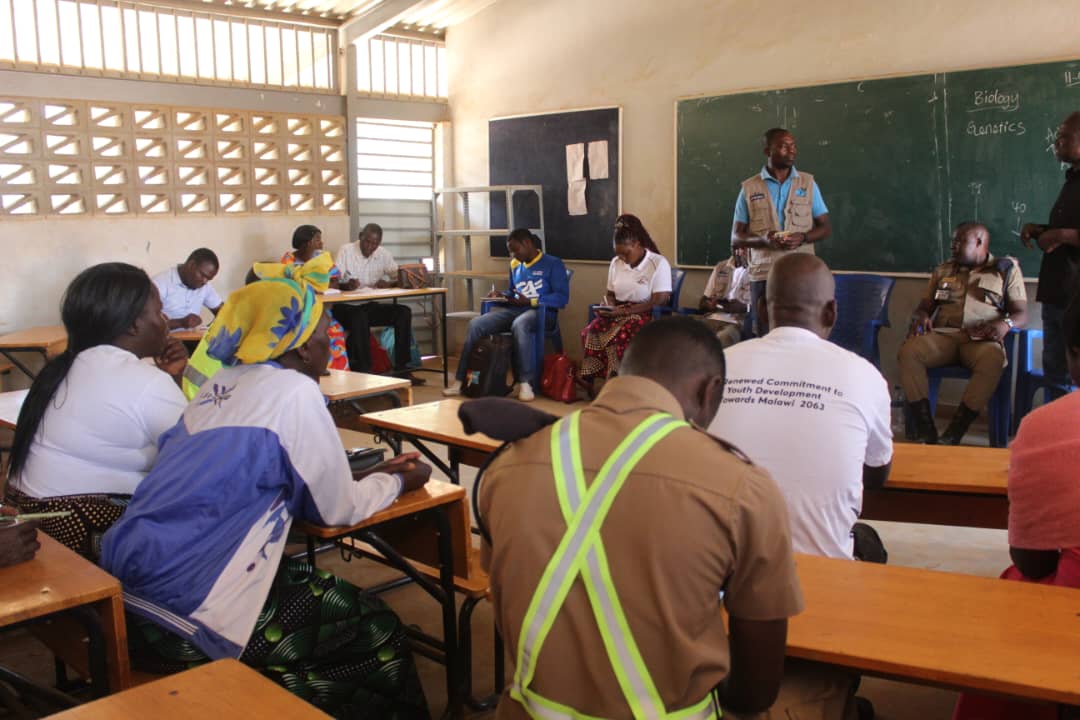Communities in Traditional Authorities (T/As) Zulu in Mchinji and M’bwatalika in Lilongwe have pledged to uphold peace and coexistence during and after the September 16 General Elections.
Group Village Head (GVH) Gasiyano and community leaders at Msundwe Trading Centre assured the Catholic Commission for Justice and Peace (CCJP) on Friday that their subjects have been fully sensitized and do understand now the importance of preserving peace during polls.
They made the sentiments during a community engagement session aimed at preventing electoral violence, which CCJP conducted with financial support from AHEAD Africa and co-funded by the European Union (EU) through a project titled “Promoting Peaceful Elections in Malawi through Prevention of Election Violence and Civic Education”.
Similar community engagement sessions to prevent electoral violence took place in Nkhotakota district. The aim of the sessions was to encourage participants, especially women and the youth, to participate in electoral processes and voting, and refrain from engaging in violence during the elections.
In his remarks, GVH Gasiyano expressed commitment to ensuring a peaceful election period and accepting the results even if they do not go in their favour.
“Violence doesn’t build, but destroy the nation. So, we have sensitized our subjects to reject any temptation to incite election violence,” he said.
Community leaders at Msundwe Trading Centre echoed the sentiments in a separate session.
“Msundwe Trading Centre was known as a no-go zone for other political parties in the past. But this is not the case today. Every political party has come and held their campaign rallies here with suffering any violence,” said one of the traditional leaders.
CCJP Gender Officer Mwai Chisi said underscored the importance of elections as the foundation of democracy, ensuring that citizens can freely choose their leaders and build national unity without fear of intimidation.
Chisi emphasized the need for the youth and women to play a key role in preventing electoral by promoting dialogue, tolerance and non-violent conflict resolution, as they are both the majority and most affected by such violence.
Participants to the community engagement sessions were drawn from women, youth representatives from various forums and clubs, Area Development Committee (ADC) members, law enforcers and religious leaders.
